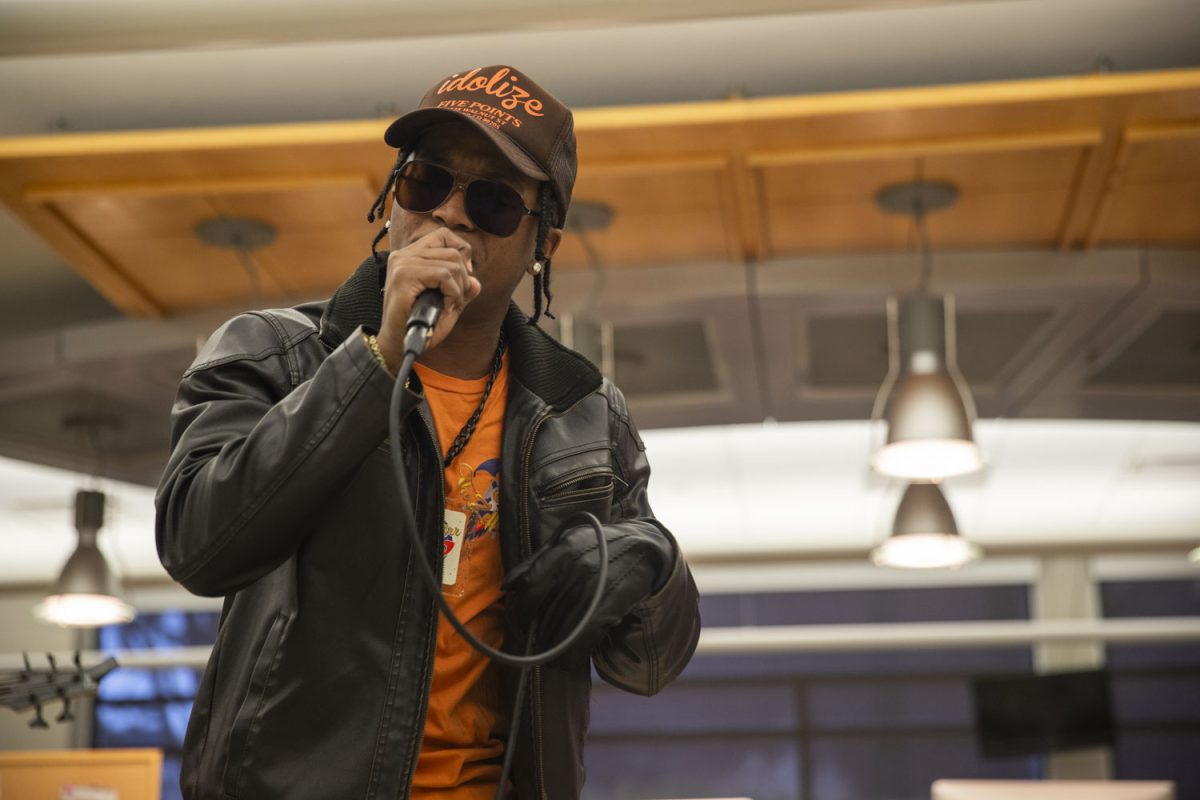In Susannah, the lead character faces slander and accusations about her sexual behavior, and when she is not accepted by her community, she’s forced to find an inner strength. Some may say her story is a tragedy.
“A tragedy needs to break your heart for a good reason,” director Gary Briggle said. “And that is to open your eyes and spirit to being more open-minded and compassionate. And I think Susannah, however painful the story may be, absolutely succeeds in raising consciousness.”
The UI Martha-Ellen Tye Opera Theater will perform Susannah at 8 p.m. on Friday at the Englert Theatre, 221 E. Washington St. The opera will also be performed at 8 p.m. on Saturday and 2 p.m. May 2. Admission ranges from $5 to $20.
Susannah is set in the 1940s and based on the biblical story “Susannah and the Elders” in the Catholic and Orthodox Book of Daniel. Susannah, an 18-year-old girl, is discovered bathing in a creek by male elders of the community’s congregation, who label her a sexual tempter. The minister, while attempting to get Susannah to confess her sins, is overcome with lust and sexually abuses her. By the end of the story, many lives are lost, and a community is shattered.
“It’s a tragedy with a capital T,” said Briggle, 56.
One aspect adds to the complexity of an operatic tragedy — the music. Whereas musicals are driven more by the text, operas focus more on the music and the mood it creates. That music, Briggle said, describes the emotional and spiritual inner life of the characters.
“I think what makes this opera really lovely and compelling is the use of folk music,” he said.
Susannah has recently been changed from a grand opera to a chamber opera. Grand operas tend to have more than 40 instruments, whereas chamber operas have 20 or fewer, and all the proportions of the productions are scaled down accordingly. A chamber opera is better for young voices because they don’t have to sing over a large orchestra, Briggle said.
The UI production features six players in the orchestra who create a unsual bluegrass-gospel band, employing such instruments as a piano, banjo, and fiddle.
The level at which the music blends with emotions, Briggle said, is when the audience really gets hooked.
“It’s really a wonderful, engaging evening in the theater,” the director said.
The cast of 15 ranges from UI undergraduates to graduate students, and Briggle feels this offers more opportunities and a better experience for everyone involved.
Performer Jacqueline Lang agrees, noting that the performance is something she doesn’t find very often.
“It’s more a musical drama, and not an opera,” said Lang, 31. “In that sense then, you really have to be an actor who is present on the stage, listening to the other singers giving their lines. And having that reaction in that moment, is one thing that you don’t necessarily find in other operas.”
While operas can be intimidating at times, Briggle hopes the production is more engaging for the audience. And he feels the provocative subject of Susannah will keep the viewers talking about it after leaving the theater.
“It takes your emotions to a new place,” he said. “Opera is a place where everything is heightened.”






